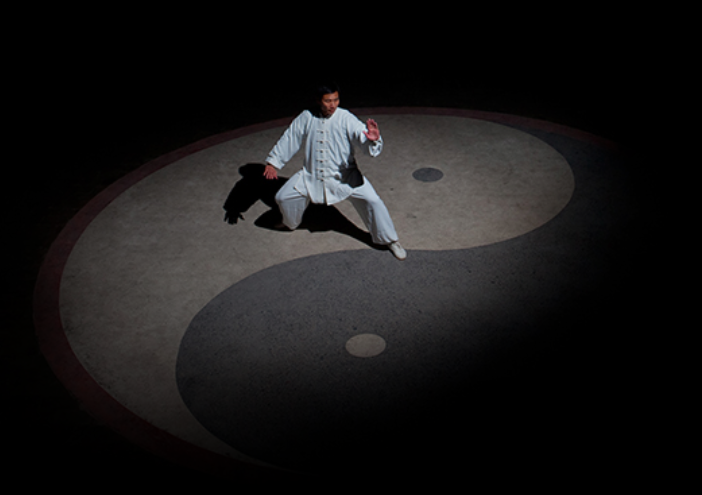Translator’s Note:
Master Chen Bing is a descendant of the Chen family that developed Taijiquan in Chenjiagou. At the age of six he started learning the family art from his uncles Chen Xiaowang and Chen Xiaoxing. Master Chen Bing holds a bachelor’s degree in martial arts from graduated from Shanghai University of Sports, and founded Chenjiagou International Taiji Academy in 2007. He developed “Chen Style Taijiquan Relaxation Exercises” and “Chen Style Taijiquan 13-Posture Harmony Routine”, which were included in his book Introduction to Chen Style Taijiquan (2011). He is currently President of the Chenjiagou Taijiquan Association. He frequently travels to the USA, Italy, Spain, Germany, Switzerland, Korea, Japan, Brazil and other parts of the world to teach and promote taijiquan.
Master Chen Bing says, “as a native of Chenjiagou and growing up immersed in taijiquan culture and learning, I am always delighted to discuss any aspects of the art of taijiquan, especially of the Chen style.” Below is his recent Q&A with the public on the state of Taijiquan as a martial art. I have the privilege of translating parts of it into English with Master Chen Bing’s permission. The original and complete post in Chinese can be read here: http://m.thepaper.cn/asktopic_detail_10008396.
Traces of Bamboo Rice Bowl: How good is Chen Style Taijiquan in combat? Can you guys compete with MMA fighters and win?
Chen Bing: Dear Traces of Bamboo Rice Bowl, Chen Taiji is fairly well known for its combat applications. Whether it could overtake MMA fighters depends on the game rules. Under MMA rules, taijiquan no doubt has a bigger chance of losing; under taiji sparring rules, MMA could also have an advantage of “fighting the long with the short”. Losing is not a big deal, one can always reflect and refine [their skills]. Throughout history which martial art has not lost once?
New Beginning: Taijiquan, dare to take on a supermatch with Sanda?
Chen Bing: Greetings New Beginning! Are you just curious, or do you have some particularly fascinating ideas? Sanda originated from traditional wushu but exceeds folk martial arts in many aspects including training methods, intensity, practical combat applications, body recovery, nutrition, as well as selection of athletes. Though related, there are many differences [between taijiquan and sanda]. Why not learn from each other and improve together? I think that would be more pragmatic and important than calling dares.
Long Dong Qiang: In some videos, you see people touch a so-called taiji master and go flying or spasm like they are struck by electricity. Is this for real? What is the principle?
Chen Bing: Greetings Long Dong Qiang! I have always firmly believed that making an opponent wobble, fall, or flip with no contact or very superficial contact is implausible. If you insist on me offering a principle for this, I would say probably similar to Shuanghuang.
[Translator’s note: Shuanghuang is a traditional Chinese entertainment genre typically involving two actors, one in the front acting, the other hidden and providing voice. Their performance requires perfect synchronization.]
Li Wei: I saw some online videos which might be showing a skewed view of taijiquan, but there were these actors who were supposed to be taijiquan master… for example one was cautious about causing someone fatal internal injuries, and a middle-aged woman who knocked down a group of young guys — are these the wisdom of taijiquan? Do you know them?
Chen Bing: Greetings Li Wei! I don’t know the two you mentioned. I also don’t think their performances are showing the wisdoms of taijiquan, but they are definitely a test of the audience’s wisdom.
Meditator: How is taijiquan in combat? Why is there not one public case where taijiquan beat other fighting styles fair and square? Also, “Chenjiagou is the birthplace of taijiquan” is still heavily disputed; there are not enough reliable historical evidence. Isn’t it inappropriate for Chinajiagou to claim the birthplace title?
Chen Bing: Greetings Meditator! It’s true there aren’t many cases in which taijiquan competed with other fighting styles, but this is improving. For example, there have been programs on CCTV that showed taijiquan vs. karate, Shaolin, Wudang, etc.
The claim that Chenjiagou is the birthplace of taijiquan was not an invention of the residents in Chenjiagou. In 1930, Mr. Tang Hao, martial arts scholar from the Central Guoshu Institute, investigated and concluded that Chenjiagou was the birthplace of taijiquan. In 2007, China Wushu Associate reaffirmed this and issued Chenjiagou a plaque bearing “Birthplace of Taijiquan in China”. I don’t think this was a light gesture. If anyone can provide more convincing evidence that taijiquan originated at another location, I’m sure everyone would respect the newly discovered truth. Currently, it is more meaningful to inherit and develop taijiquan than to fight for where the origin is. If nobody is practicing taijiquan at the so-called birthplace, or if their skills lag behind outsiders, how shameful would it be to call oneself the original! In my opinion, the “birthplace” badge is not glory but responsibility.
The Law of Dao is Natural:Greetings Master Chen! Could you tell me how to become your disciple?
Chen Bing: Whoa The Law of Dao is Natural, how did you come up with this questions? I don’t even know how to answer it. I think it’s more important to love taijiquan than to follow a certain teacher. Anyone who loves their teacher more than they love taijiquan is… what do you call them? Sorry, I’m joking. Please don’t take offense!
Fire Baby: Don’t waste your breath talking, do you dare take the challenge? Yes or no?
Chen Bing: Hello Fire Baby. To a fierce martial artist like you, taiji practitioners are better off keeping a respectful distance, especially those who chose taiji for mind and body health. Best not to bother them please.


